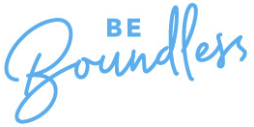Dr. Stephen Covey’s quote, “always begin with the end in mind’ is certainly appropriate when determining which individuals to request to serve as references and/or to provide you with a letter of recommendation. The more thought and strategy YOU put into asking what you want articulated on your behalf, the more effective your efforts will be in securing references or letters of recommendation which support your goals. It is not fair or efficient to ask for a letter of reference that is open-ended based upon someone’s knowledge of you and your work. Given them a template by which to structure their thoughts. It will save them time on something they are doing voluntarily for you, and make an effective level of advocacy for your needs in reaching your goals. Below are some tips for how to do this.
LETTERS OF RECOMMENDATION:
You don’t need to compile letters of recommendation unless the scholarship, program or position you are applying to specifically requests it. If I get 5 letters of recommendation for an application to a position that I did not ask for, instead of impressing me, it makes me suspect of what the person is hiding.
REFERENCES:
The adage of “references available upon request” on a resume is not necessary. Either include as a separate page of references with your resume or have a list readily available, should it be requested. The references should state the person’s name, title/organization, contact information (including phone and email) and a bullet point about how that person knows you. It should have your name and contact information at the top of the page, similar to what you have on your resume. Typically your references consist of 3-5 individuals unless otherwise specified. It should always include someone with supervisor/mentorship experience with you.
Example:
JOHN DOE
Manager, XYZ Corporation
123 Main Street
Anywhere, GA 31212
john.doe@xyzcorp.com| 706-555-1212
(Former direct supervisor at ABC company)
In requesting letters of recommendation or references, you as the requestor, should do the following:
- Identify those who have seen you in an academic, volunteer or work capacity who can advocate most closely to the traits and skills you are trying to convey to the audience. These are known as professional references. Refrain from personal references (neighbors, friends, etc.) unless your packet specifically requests a personal reference. If it does not, the submissions should focus on professional references only.
- Only use individuals who have given you explicit permission to be used as references. Assume nothing. There is nothing more embarrassing for you than to have an employer surprise a reference of yours who has zero knowledge of your request and sometimes, zero knowledge to share about you.
- Be willing to ask your references up front what comes to mind they would likely share, if providing a reference. This is successful for two reasons.
- It helps provide a warm up brainstorming session to your reference to put some thought behind this question well before it is asked.
- Chances are, your references see things in you as strengths you may not readily see in yourself. It’s not only important to know yourself as you compete for a job or program, it is critical to know how others perceive you and see your value. Sometimes those things are not always the same.
- Select your reference contacts based on the content of their knowledge about you, not their title. If you had an immediate supervisor who knows your work on a daily level and then their supervisor knows you by name, but not specifically the attributes of your work, choose the front-line supervisor as a reference. Content should trump titles when selecting your references.
- Ask for the help from your references well in advance of deadlines, as the compilation of letters takes time and is voluntary. Provide them with a deadline to let you know if they are willing to offer a letter of recommendation and provide a deadline in which to have the reference letter completed for submission. Keep in mind some organizations prohibit their employees from providing detailed references on past-employees. You need to have plans in place for how to expand your scope of contacts if this happens.
- In the request, provide a brief narrative that explains what you need the letter or reference for, the scope of what you would like them to highlight/demonstrate, the deadline and any specific format needs. Don’t make them dig through your 15 page application packet to find instructions specific to what is needed in a letter of recommendation. Give that excerpt cleanly and precisely in writing as part of your request.
- Guide your references to highlight examples of your initiative, where they have seen growth in you, attributes where you stand out compared to peers, etc. Don’t assume that everyone you ask is good at writing or articulating the things you need. This is a special skill. I have sat on many a committee reviewing qualified talent where the letters or references put a candidate ahead or behind the rankings based on how insightful they were.
- When applicable, provide a self-addressed, stamped envelope to the provider for where the letter of recommendation should be submitted. If there is a website or specific url for submission, provide that to them.
- Send references a thank you after they have completed the letter or agreed to serve as a reference.
- Keep your references in a feedback loop of your efforts. Most references are checked after you have interviewed and you are deemed to be one of the finalists. It is critical at this juncture for you to take the insights and knowledge gained about the position and company to share BACK to your references in anticipation of them being contacted. It helps your references to freshen their framework in discussing your attributes/skills specific to the insights you gained about the role and your ability to do it.
- Don’t forget the share the end result with your references. If you get accepted, share the good news. If you don’t get accepted, let them know. Sometimes it is hard to relay when we fall short of a goal but these are still your advocates who can help you with alternate paths and networks to assist you. If they have taken the time to invest in you, take the time to complete and honor a loop of feedback as to your efforts.
Recommendations and references are cultivated through relationships. Like networking, you start building these relationships long before you “need them” as references or for letters of recommendation. If you are not actively pursuing a job or a specific program right now, ask yourself, “Do I have 3-5 people who have seen me closely in some sort of supervision or mentorship capacity who can account for me?” If the answer is no, start creating some new levels of engagement through civic, employment and academic leadership opportunities to start that journey.





